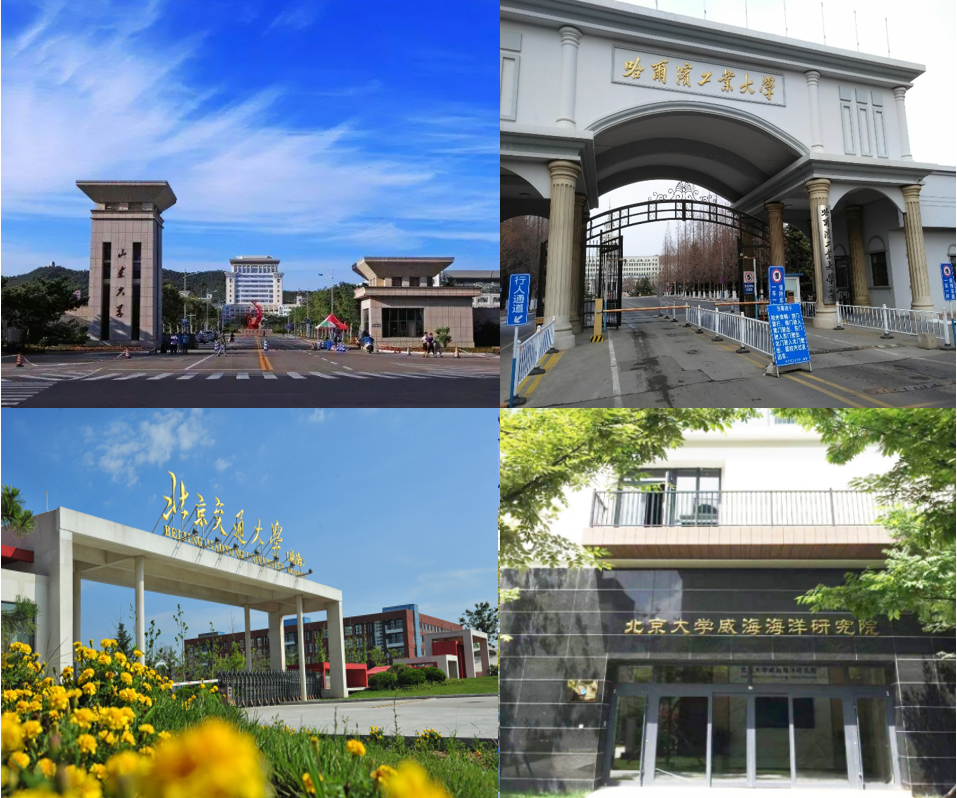
The inception of the “International Conference on Climate and Energy Finance” (ICEF) dates back to 2018 and was initiated by Professor Qiang Ji and Professor Zhang Dayong. The primary goal of this conference is to propel research development within the realm of climate and energy finance in China while fostering academic exchanges on both domestic and international fronts. The organizational and coordination responsibilities for the conference rest with the ISETS Energy Finance Network and the Studies of Climate Finance, Chinese Society of Optimization, Overall Planning, and Economical Mathematics. Over the years, ICEF has been successfully hosted in various cities such as Beijing, Kunming, Qingdao, Xiamen, Nanjing, and Changsha. The conference has consistently attracted the participation of experts and scholars from over 20 countries and regions, representing more than 200 universities. Recognized in the China Association for Science and Technology’s “Important Academic Conference Guide” for four consecutive years, ICEF has played a crucial role in advancing the development of climate and energy finance disciplines and contributing to talent cultivation in China.
We are pleased to announce that the 2024 International Conference on Climate and Energy Finance (ICEF 2024) will be held by Shandong University between May 31- June 02, 2024 in Weihai City, Shandong Province, China. The conference is an annual event organized by the ISETS Energy Finance Committee and the Society for the Studies of Climate Finance.
The first ICEF event was held in Beijing (2018) and has become the most important conference in the area of climate and energy finance. It seeks to provide a platform for international scholars to share their original research and join the debates in frontier topics. Following the successes of the past six events in Beijing (2018), Kunming (2019), Qingdao (2020), Xiamen (2021), Nanjing (2022) and Changsha (2023), we sincerely invite you to submit your high-quality original research to ICEF2024, to jointly discuss the cutting-edge areas and key issues of climate and energy finance research.
The main theme of ICEF 2024 is Challenges and Opportunities for Energy and Climate Finance in Global South. Papers to be considered include but are not limited to the following topics:
|
|
|
|
|
|
|
|
|
|
|
|
|
|
|
|
For more information, please refer to the conference website: http://www.cnefn.com, and enquiries can be sent to energyfinance@126.com.
Organizers
ISETS Energy Finance Committee
Society for the Studies of Climate Finance, Chinese Society of Optimization, Overall Planning and Economical Mathematics
Shandong University
Co-organizers
TIERS, Southwestern University of Finance and Economics
Institutes of Science and Development, Chinese Academy of Sciences
Weihai Institute for Interdisciplinary Research, Shandong University
Conference chairs
Qiang Ji, Chinese Academy of Sciences, China
Dayong Zhang, Southwestern University of Finance and Economics, China
Ning Zhang, Shandong University, China
Scientific committee chairs
Xi Lu, Tsinghua University, China
Qunwei Wang, Nanjing University of Aeronautics and Astronautics, China
Yudong Wang, Nanjing University of Science and Technology, China
Yue-Jun Zhang, Hunan University, China
Organizing committee chairs
Jiashuo Li, Shandong University, China
Yan Xia, Chinese Academy of Sciences, China
Scientific committee
Elie Bouri, Holy Spirit University of Kaslik, Lebanon
Bin Chen, Beijing Normal University, China
Ying Fan, Beihang University, China
Stéphane Goutte, University Paris-Saclay, CEMOTEV, France
Rangan Gupta, University of Pretoria, South Africa
Qiang Ji, Chinese Academy of Sciences, China
Lutz Kilian, Federal Reserve Bank of Dallas, United States
Ali M. Kutan, Southern Illinois University Edwardsville, USA
Boqiang Lin, Xiamen University, China
Brain Lucey, Trinity College Dublin, Ireland
Shunsuke Managi, Kyushu University, Japan
Muhammad Ali Nasir, University of Leeds
Duc Khuong Nguyen, EMLV Business School, France
Ronald D. Ripple, KAPSARC, Saudi Arabia
Xunpeng Shi, University of Technology Sydney, Australia
Ugur Soytas, Middle East Technical University, Turkey
Bin Su, National University of Singapore, Singapore
Aviral Kumar Tiwari, Montpellier Business School, France
Samuel A. Vigne, Trinity College Dublin, Ireland
Shouyang Wang, Chinese Academy of Sciences, China
Zhaohua Wang, Beijing Institute of Technology, China
Jian Yang, University of Colorado, USA
Dayong Zhang, Southwestern University of Finance and Economics, China
Zhongxiang Zhang, Tianjin University, China
Peng Zhou, China University of Petroleum, China
Organizing committee
Jing Chen, Shandong University, China
Ling Cong, Shandong University, China
Kuishuang Feng, University of Maryland, USA
Jiangbo Geng, Zhongnan University of Economics and Law, China
Kun Guo, University of Chinese Academy of Sciences, China
Xiaoyan Guo, Shandong University, China
Lingjun Hou, Shandong University, China
Haiqian Ke, Shandong University, China
Dan Li, Shandong University, China
Jiashuo Li, Shandong University, China
Jing Li, Shandong University, China
Wei Li, Shandong University, China
Jingyu Liu, Shanghai Jiao Tong University, China
Yinpeng Liu, Beihang University, China
Xi Liu, Shandong University, China
Xiaotian Ma, Shandong University, China
Hao Sun, Shandong University, China
Xiaolei Sun, Chinese Academy of Sciences, China
Peipei Tian, Shandong University, China
Chao Wang, Shandong University, China
Jie Wu, Shanghai University of Finance and Economics, China
Yu Xin, Shandong University, China
Feng Xue, Shandong University, China
Lili Xu, Shandong University, China
Mian Yang, Wuhan University, China
Haowei Yu, Shandong University, China
Yanni Yu, Shandong University, China
Ning Zhang, Shandong University, China
Xu Zhao, Shandong University, China
Honglin Zhong, Shandong University, China
Penghu Zhu, Shandong University, China
Kyenote Speakers

YING FAN
BEIHANG UNIVERSITY

DAVID BROADSTOCK
NATIONAL UNIVERSITY OF SINGAPORE

DUC KHUONG NGUYEN
EMLV BUSINESS SCHOOL, FRANCE

BING ZHANG
NANJING UNIVERSITY OF FINANCE & ECONOMICS
Editors' Forum

YANG XIA
NATURE SENIOR EDITOR

SHUNSUKE MANAGI
KYUSHU UNIVERSITY

NING ZHANG
SHANDONG UNIVERSITY

DAYONG ZHANG
SOUTHWESTERN UNIVERSITY OF FINANCE AND ECONOMICS
Submission process
An extended abstract is needed and we encourage authors to submit full papers. Please go to the conference website: http://www.cnefn.com/icef/icef-2024/ and use the online submission portal to submit your paper.
Publication opportunities
Papers submitted to the conference have the opportunity to publish in one of the special issues. Qualified papers will be invited to submit to the suitable journal based on recommendations by the guest editors. Please note that the recommendation does not guarantee final publication, all regular requirements and reviewing process set by journals have to be satisfied.
List of special issue journals
-Energy Economics (SSCI: JCR 1; Special Issue: Navigating Uncertainties towards Just Energy Transitions)
-International Review of Financial Analysis (SSCI: JCR 1, ABS 3, ABDC: A)
-International Review of Economics and Finance (SSCI: JCR 1, ABS 2, ABDC: A)
-Finance Research Letters (SSCI: JCR 1, ABS 2, ABDC: A)
-Journal of Climate Finance
-Green and Low-Carbon Economy
Important dates
– Abstract submission deadline: April 10, 2024
-Notification of Acceptance: April 25, 2024
-Full paper submission deadline (for special issues): May 05, 2024
-Registration deadline: May 15, 2024
-Conference: May 31- June 02, 2024 (Registration: May 31)
Programme
Conference Venue
Haiyue Jianguo Hotel
Address: 177 West Wenhua Road, Weihai, Shandong, China

City Information
Location
Weihai, a prefecture-level city in Shandong Province, is located at the eastern tip of the Shandong Peninsula. It is surrounded by the Yellow Sea to the north, east, and south, and faces the Liaodong Peninsula to the northeast. To the west, it borders Yantai, Shandong.
Climate and Environment
Weihai is known for its beautiful beaches, such as Liugong Island, Jintan Beach in Rongcheng City, and Caolanzi Beach. These beaches are ideal for relaxing, sunbathing, and water sports. With average temperatures ranging from 23°C to 30°C in June, Weihai is a great place for outdoor activities.
Weihai is the first city in China to be awarded the title of National Hygiene City. It has also received numerous ecological and environmental awards, including the United Nations Habitat Award. In 2020 and 2021, Weihai was ranked as one of the happiest cities in China. The city has consistently maintained national second-level air quality standards for seven consecutive years, ranking first in the province.


The pleasant environmental and climatic conditions of Weihai
History and Culture

Weihai has a rich and vibrant history, with many notable figures who have made significant contributions. Over its more than 500-year history, Weihai has produced many individuals worthy of praise. During the First Sino-Japanese War, patriotic leaders from the Qing Dynasty’s navy and army fought bravely against the enemy, sacrificing themselves for their country. During the Xinhai Revolution, a group of dedicated patriots from Weihai fearlessly gave their lives to overthrow the Qing Dynasty, playing a pivotal role in this historic event.
Liu Gong Island, the birthplace of China’s first modern naval force, the Beiyang Fleet.
Economy
Weihai has a resident population of 2.92 million and a regional GDP of 0.34 trillion yuan. Despite having one of the smallest populations among the 16 prefecture-level cities in Shandong Province, Weihai consistently ranks among the top 30 to 40 cities in China in terms of per capita GDP. As one of the first coastal open cities in China, the foreign trade is a major contributor to the city’s economy, which shares nearly half of the city’s total GDP in 2023. Moreover, the city’s second and tertiary industries share 38.5% and 51.1% of the total GDP in 2022, respectively. Major industries include tourism, clothing, mechanical manufacturing. and so on, and has also been approved as a national demonstration city for innovative development in the marine economy.

Bustling night markets in Weihai
Science Research & Education
Weihai has top-tier research institutions and high-caliber research teams in a variety of fields, including marine science, biomedical sciences, information technology, and new materials. Scientific research projects in Weihai receive strong support from the government and businesses, spurring innovation and interdisciplinary collaboration. Several universities and research institutes have established research centers in the city, attracting leading scientists and researchers from both domestic and international backgrounds.

China’s first-class universities in Weihai
Tourist Attractions & Culinary Specialties
Weihai, a tranquil and healing coastal town, offers an exclusive sense of romance with its treasure trove of coastline, azure seas, sea breezes, and abundant sunshine. Some of the enjoyable attractions in Weihai include Liugong Island (刘公岛), Huaxia Town (华夏城), Jiming Island (鸡鸣岛), Weihai Park (威海公园), Huancui Tower (环翠楼), and the 8th Torch Street (火炬八街). Weihai offers a diverse array of delicious and cost-effective cuisine, showcasing its unique local flavors. You can savor specialties like roasted oysters (烤生蚝), double cooked pork slices (锅包肉), fish cake pot (鱼锅饼子), mackerel dumplings (鲅鱼饺子), Laofan with sea cucumber (海肠捞饭), and steamed seafood pot (蒸汽海鲜). Each dish on our menu has been carefully selected by thousands of netizens and experts, so you can be sure you’re in for a delicious and memorable dining experience.

Must-try Weihai specialties
Registration fee
International participant:
Regular participant: $400
Student: $250
Chinese participant:
Regular participant: 2600 RMB
Student: 1600 RMB
Note: All the international participants who attend online sessions can enjoy the 50% fee discount.
(1) REGISTRATION FEES are payable in advance, no onsite registration is allowed.
(2) To include the paper in the conference program and the conference proceedings, at least one of the authors has to register before the registration deadline. If multiple submissions are accepted, then a different author will be required to pay the registration fee and present each paper. Otherwise, authors will be contacted and asked to drop one or more paper(s) for presentation.
(3) Full time student (not including post doctor) MUST provide proof of full time status (copy of valid student ID card or letter from affiliated institution head or program director).
1. Foreign participants:
(1) Payment by Bank Transfer
Bank: National Australia Bank
BSB (bank, state, branch): 082-356
BIC/SWIFT code: NATAAU3303M
Account number: 406628981
Beneficiary name and address: International Society for Energy Transition Studies, 5 Barraba Place, Bella Vista, NSW 2153, Australia
or (2) Online payment by paypal at:
https://paypal.me/AusEnergyTranInst?locale.x=en_AU
Please quote the attendee name+EnergyFinance as the Remittance Information when make payment.
Please Login in the system by your account and fill in the registration form and upload the photographed or scanned copy of the remittance.
2. 国内参会者(国内参会者请务必通过以下账号汇款)
支付方式1:二维码支付(推荐)
注:通过二维码支付的参会者不需要在本会议系统中上传注册表

支付方式2:银行转账
账号名称: 中国优选法统筹法与经济数学研究会
开户银行: 中国工商银行海淀西区支行
账 号: 0200004509089143934
汇款请备注留言: 能源金融会议+姓名
请使用个人账号登陆会议系统,填写参会注册表,并将汇款凭证上传
需要开发票的参会人员,请将发票抬头,金额,单位税号等详细信息填写至会议系统内的注册表
Cancellations Policy
No refund can be made from the original registration fee once the registration fee is confirmed. There are no exceptions to this policy. Should you be unable to attend, however, a substitution may be made to transfer your fully paid registration to another member of your organization at any time up to May 25, 2024.
